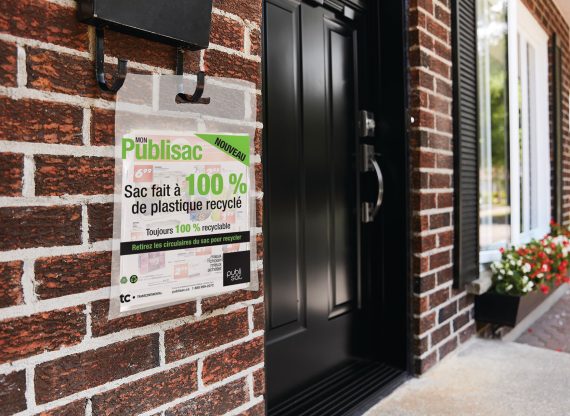Defending Publisac is defending newspaper jobs

A group of elected municipal officials, wanting to appear greener than green, is unanimously recommending the “opt-in” formula for distributing Publisacs or other bags of advertising flyers in Montreal.
With this method of distribution, those who wish to receive such advertising material must expressly communicate their agreement to do so. This is the opposite of the current situation, in which everyone receives it by default unless they have specified their desire to opt out.
However, as highlighted by the Montreal Economic Institute (MEI) in a recent publication, this policy will have an unintended consequence: that of directly threatening the business model and the survival of some 120 local weekly newspapers. As of now, these newspapers are distributed in the Publisac, along with the multiple advertising leaflets. Without the support of Publisac and the economies of scale that flow from sharing distribution costs, it will be much more expensive to distribute these weeklies to each door — too expensive, in fact, which will condemn a lot of them to extinction, along with the related journalism jobs.
Did the elected officials think about this adverse side-effect when they were preparing their recommendation? Undoubtedly yes, since many groups — including the MEI — took the time to explain to them the widely diverging results that could be expected from the opt-out and opt-in models. This divergence is due to people naturally tending to go with the default option, whatever it happens to be. Whether out of laziness, lack of interest or for some other reason, people will often prefer to do nothing and thus “choose” the default option, rather than taking steps to exercise their right to opt-in or opt-out.
For example, in the case of organ donation, it has been shown that requiring people to opt out if they do not wish to donate their organs is associated with higher donation rates. Also, most governments that put in place pension plans or measures to force people to save do so by imposing saving as the default option, and those who do not wish to be part of the program can exercise their right to be excluded by opting out. Governments have realized that if opting in requires any kind of action, far fewer people will end up taking those steps to join the program.
Despite these explanations, the elected officials looking at the issue deliberately chose to jeopardize dozens of local weeklies and many jobs; their virtue signalling took precedence over rational thought and good public policies.
In this case, the recommendation of these Montreal politicians is all the more irresponsible as it will counteract the efforts of other levels of government (provincial and federal), who are looking for ways to allow newspapers to remain economically viable, namely by giving them tax credits and subsidies at taxpayer expense. Already, the federal government has pledged hundreds of millions of dollars to help this ailing industry, with the Quebec government promising tens of millions more. To undermine these measures at the local level is extremely counterproductive.
Of course, the commission recommends that the city support local newspapers in the transition process. But the recommendations to this effect are much too vague and are mostly wishful thinking, as pointed out by such groups as Métro Media and Hebdos Québec in their press releases in reaction to the recommendations.
We are all for virtue, as we are all for apple pie. But in the exercise of their functions, elected officials must think about the consequences of their decisions — not only the more visible, immediate consequences, but also the less-obvious knock-on effects that follow a little farther down the road. They would also benefit from remembering one of the first things that students learn in medicine, but which also has multiple applications in public policy: primum non nocere, or first, do no harm.
Michel Kelly-Gagnon est président et directeur général de l’IEDM. Il signe ce texte à titre personnel.

